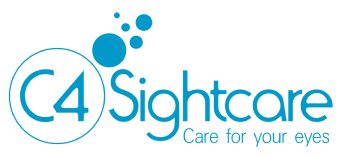Complaints
C4 Sightcare is committed to maintaining the highest possible standards of care. When things go wrong or are perceived to have fallen below the required standards we recognise the need to have an effective complaints procedure to address the problems
A useful definition of a complaint is ‘an expression of dissatisfaction that requires a response’.
Patients may not always use the word ‘complaint’. They may offer a comment or concern which can be extremely helpful, however, it is important to recognise those comments and concerns which are really complaints and need to be handled as such. It is essential that all complaints are received positively, investigated promptly and responded to sympathetically with action taken, where appropriate, to prevent a recurrence of the circumstances leading to the complaint. All comments, concerns, and suggestions for improvement will be followed up and action taken where appropriate.
Patients who experience problems within the surgery need a complaints system that allows them to express their concerns, undertakes an investigation, provides an appropriate apology (where required).
The practice has its own ‘in house’ complaints procedure which complies with national criteria. The practice can arrange for a copy of the complaints leaflet in Braille and on audio tape.
The preparation of responses on other than written formats, will take more time than stated in this procedure and the complainant will be advised accordingly.
If the complainant is known to have difficulties in reading correspondence, the practice will make every effort to provide the complainant with a response in the format they require.
The practice based complaints procedure is managed entirely by the practice.
Paul Boyle is responsible for the administering of complaints received by the practice. The practice Manager will act as deputy if the [complaints manager] is unavailable.
All records of complaints are kept in a safe place and are confidential to the practice. However, the practice has a statutory requirement to provide the Primary Care Trust and the Healthcare Commission with summaries of complaints received and any action taken.
Correspondence relating to complaints will not be filed within the patient’s medical records.
It is the policy of C4 Sightcare to ensure that in the delivery of its services, any user – or their carer, relative, friend or other advocate – has a means of registering a comment or complaint about the quality or nature of those services.
It is the policy of C4 Sightcare to accept complaints from past and present users of its services, or any relative, carer or adviser acting on their behalf, and, with their consent.
Complaints will usually be accepted for investigation up to six months after the event/incident or within six months of the date of discovering the problem.
It is the policy of C4 Sightcare to encourage satisfactory resolution of complaints at the earliest possible stage and recognises that many concerns can be resolved on the spot by a sympathetic attitude and a positive response. All complaints should be dealt with as quickly as possible. They must always be investigated thoroughly and fairly. The unsatisfactory handling of a complaint may become the reason for a further complaint. Complaints should be seen as positive feedback from patients and need to be treated fairly and impartially. They should be viewed as an opportunity to improve our services. The purpose of the complaints procedure is not to apportion blame amongst staff.
The practice will aim to respond fully to complaints within 10 working days of receipt. This is in
accordance with NHS Complaints Procedure Guidance. Where this is not possible complainants will be kept informed about the reason for the delay.
The Practice appreciates that complainants may need help and assistance in pursuing their complaint and recognises the role of the Independent Complaints Advocacy Service and patients’ advocates in advising and supporting complainants.
The Practice recognises the need for conciliation in some complaints and has access to this service.







